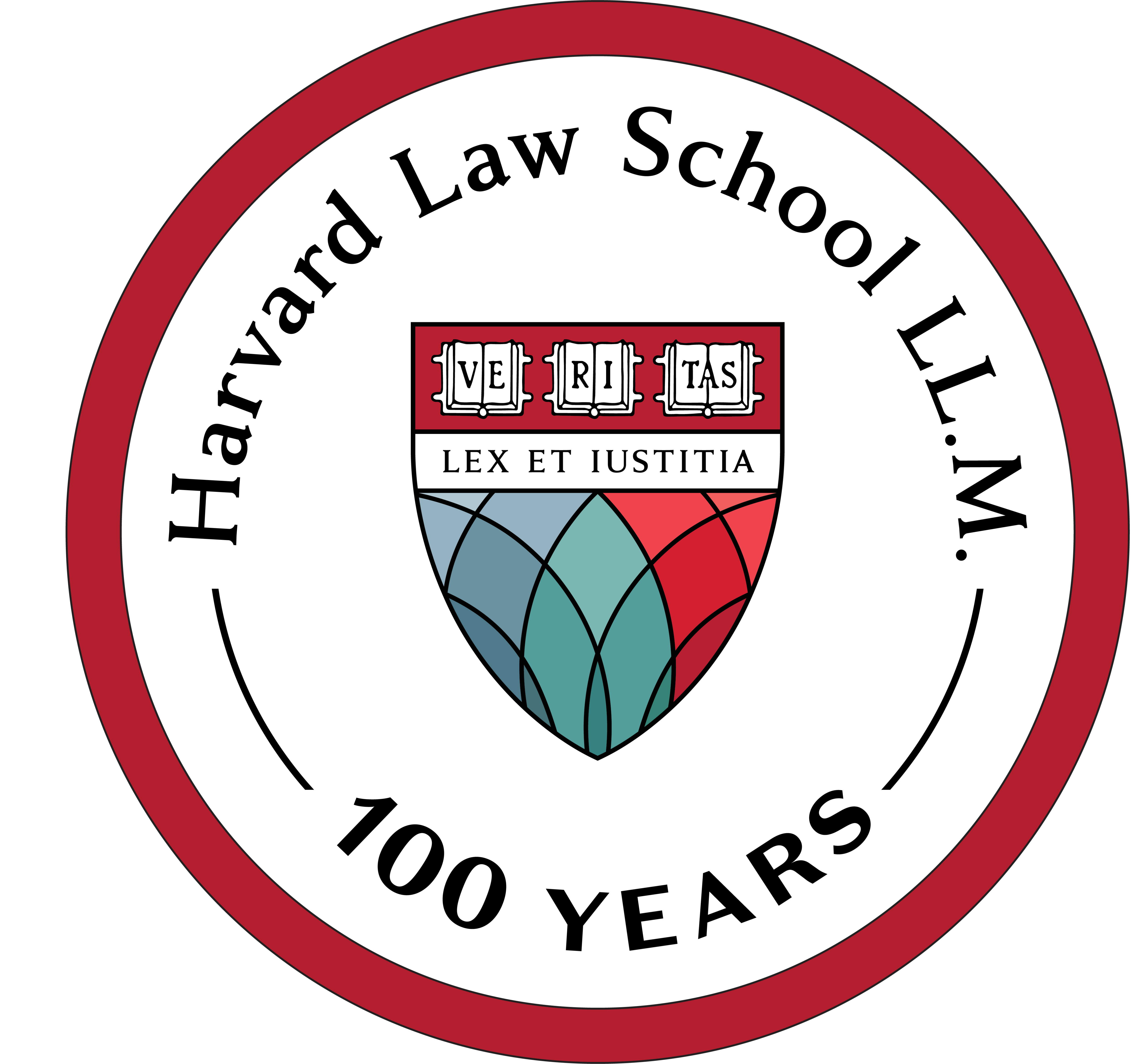
Registration is now open for “LLM 100: Transforming Lives and Law Around the World,” the celebration of the 100th Anniversary of the LL.M. Program! The two-day program will be held September 27-28, 2024, at Harvard Law School. It will feature alumni, faculty, and student speakers and a gala evening, and marks the first opportunity for LL.M. alumni to engage with other alumni and students from all graduating years.
LL.M. Class of 2024
Kobby Afari Yeboah – Ghana
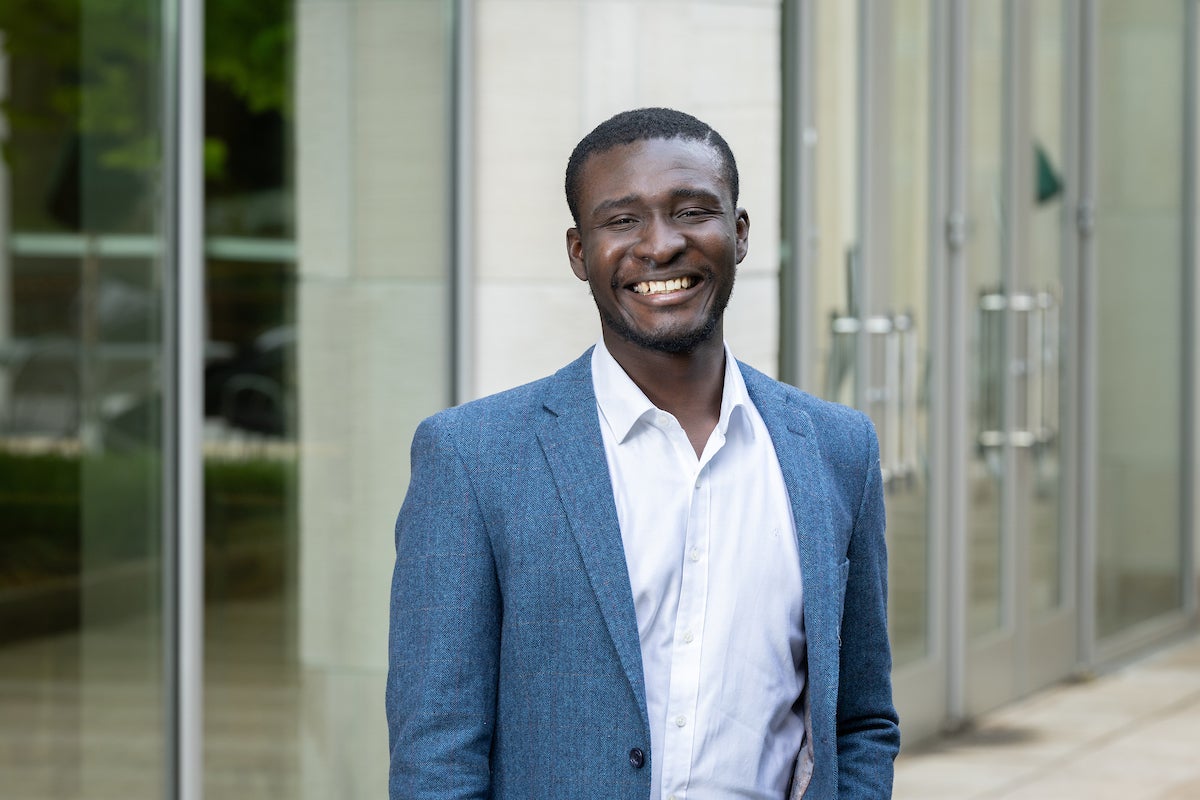
Kobby Afari Yeboah initially pursued law as a pathway to international relations and diplomacy, but eventually developed a deep passion for law practice. After being called to the bar, Kobby served as a teaching assistant for Professor Raymond Atuguba S.J.D. ‘04 and for HLS’s Making Rights Real: The Ghana Project Clinic. Starting out in private practice, Kobby hoped to become a litigator but soon discovered that he enjoyed the research, writing, and thrill of interacting with clients and regulators that came with corporate law practice. At HLS, Kobby was involved with the Harvard Human Rights Journal and the Harvard African Law Association, and he particularly enjoyed taking Corporations with Professor Kraakman, who had taught his mentor, Professor Atuguba, two decades earlier. According to Kobby, what makes Harvard Law truly unparalleled is how the academic, professional, and social sides of the program intersect. “There is always something going on and something interesting to do.” Looking ahead, Kobby is excited to advance a career that combines his interests in corporate law and international law.
Zeynep Ayata Aydoğan – Türkiye
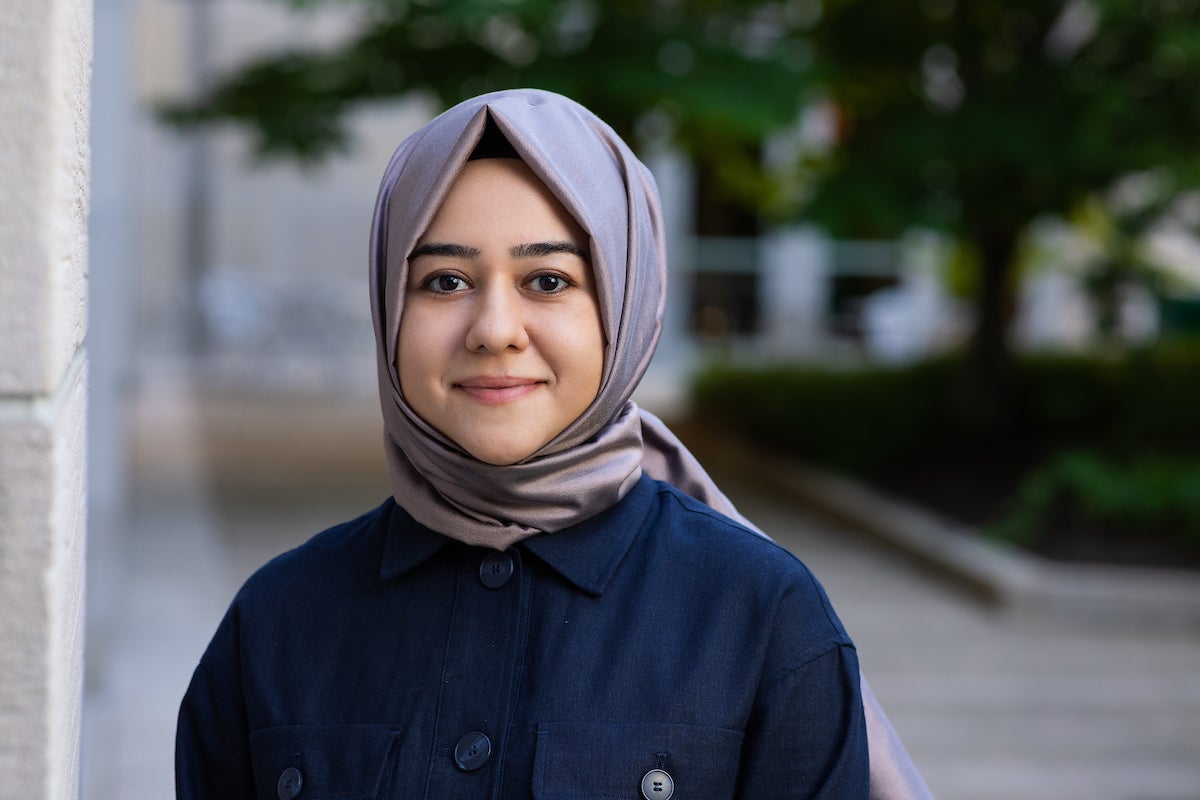
Zeynep Ayata Aydoğan is a competition lawyer from Turkey who holds a Magister Juris from the University of Oxford. Before the LL.M., she worked at the ELIG Gürkaynak law firm in Istanbul, where the dynamic challenges she encountered while working with technology companies inspired her to study technology regulation at HLS. During the LL.M. program, she took courses in privacy law, antitrust law, and cybersecurity, as well as First Amendment, and was involved with the Harvard Journal of Law and Technology. She particularly enjoyed the opportunity to work directly with clients through the Harvard Law Entrepreneurship Project and attending lunch talks with senior U.S. antitrust officials, including the heads of the Federal Trade Commission and antitrust division of the Department of Justice. Zeynep also drew inspiration from her classmates. “I’m so impressed by all the people who want to create change in their communities, and it’s good to see that that spirit is valued and encouraged here.” In the fall, she will join Clifford Chance’s Brussels office to practice under the new EU digital regulation.
Jessica Elliott – Australia
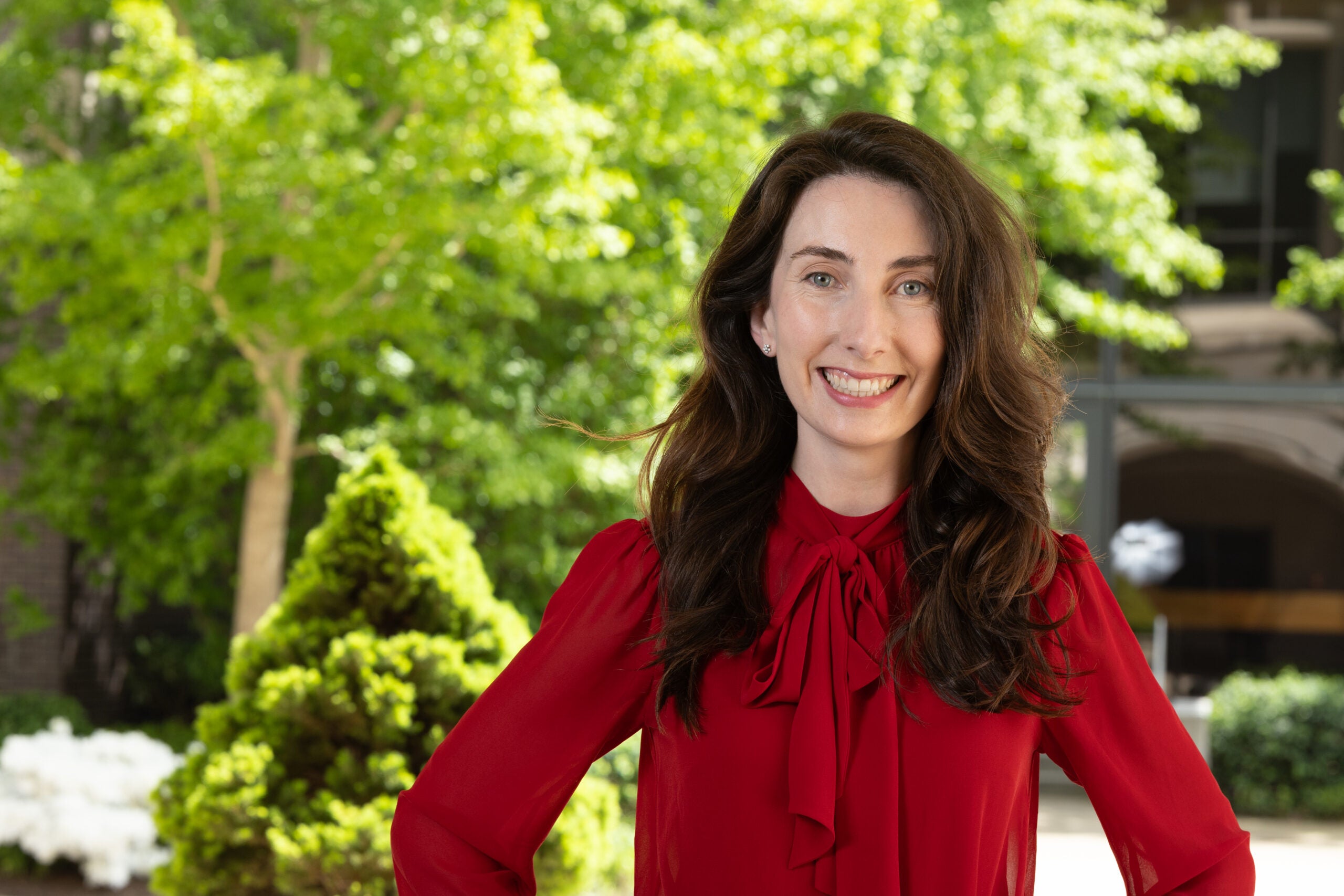
Law felt like a natural fit to Jessica Elliott, who has always been driven by a sense of justice. After her LL.B., she clerked for the Chief Justice of New South Wales before moving to outback Australia to practice as a Solicitor for the Aboriginal Legal Service. She later worked for the Australian Department of Foreign Affairs, representing Australia at the International Criminal Court and working on International Court of Justice litigation. At HLS, Jessica wanted to gain both expertise and practical skills in human rights litigation. For her LL.M. paper, she combed through records of colonial-era massacres of Aboriginal peoples, locating evidence of hidden sexual violence and analyzing it according to international criminal law. Jessica, who received a Morgan and Helen Chu Prize for the two graduating LL.M. students with the highest grade point average, will continue her work in human rights litigation. “I have a new lens through which to see the world and a new vocabulary to explain it. By the time you leave Harvard, you feel like you can do anything.”
Jakob Kesteloot – Belgium
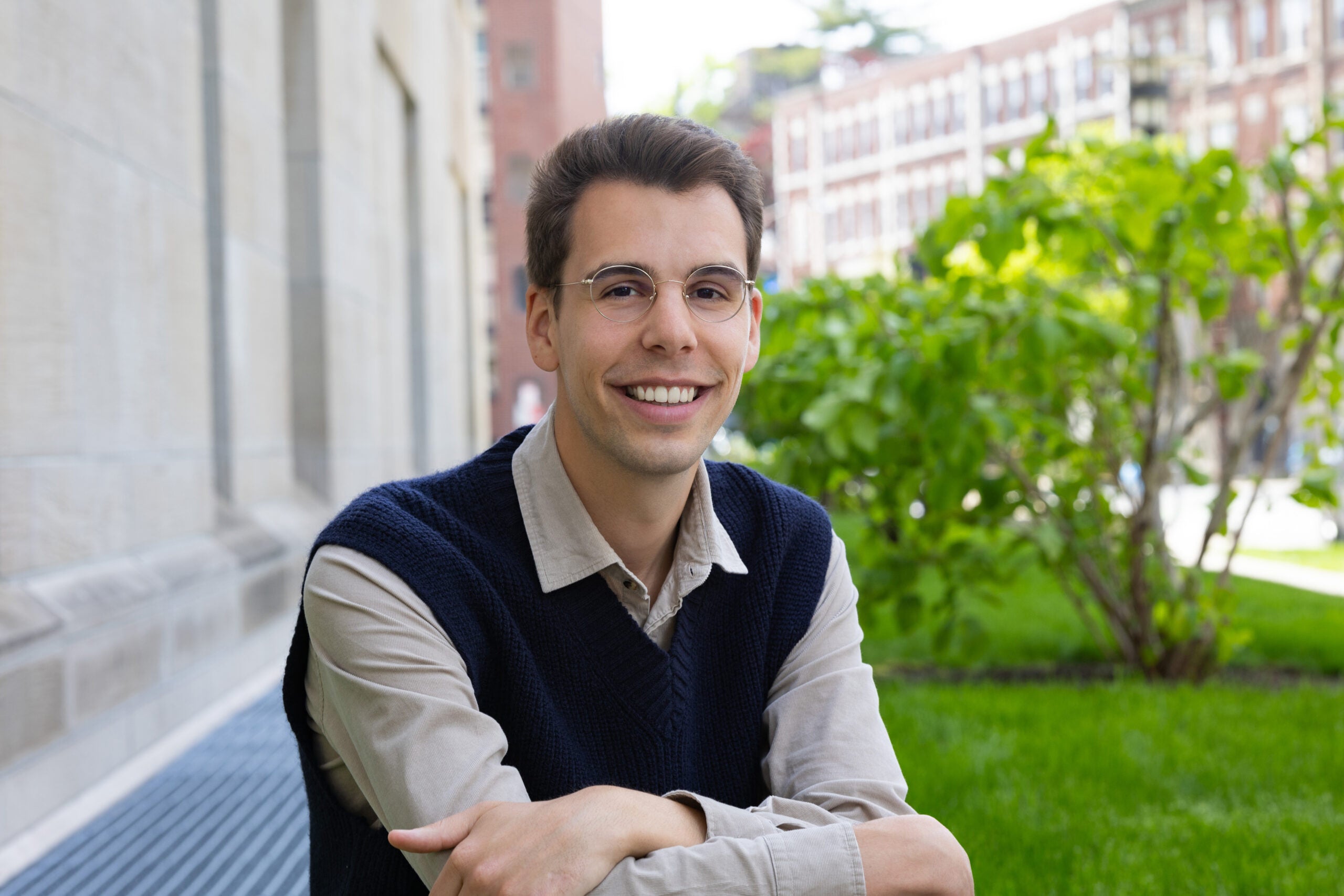
Jakob Kesteloot’s desire to contribute to and understand how society works led him to study law at KU Leuven, where he developed an interest in climate change and environmental protection. His Ph.D. research, which he will resume after graduating from HLS, looks at how private citizens and environmental organizations can ask courts to enforce environmentally sustainable conduct. At HLS, Jakob stepped back from his focus on Belgian law and took courses that enabled him to engage with the topic of climate change and environmental protection on a higher level. Jakob found the experience of connecting with peers from across the globe transformative: “I learned as much about the world in this one year as I had in my entire life before HLS.” And forming friendships with people from around the world made him realize that there are no limits to where you can go. “Despite the fact that we are from such different backgrounds, it’s amazing how similarly we think. When you start talking, there are so many ways to understand each other.”
Pìa Ruggieri – Uruguay
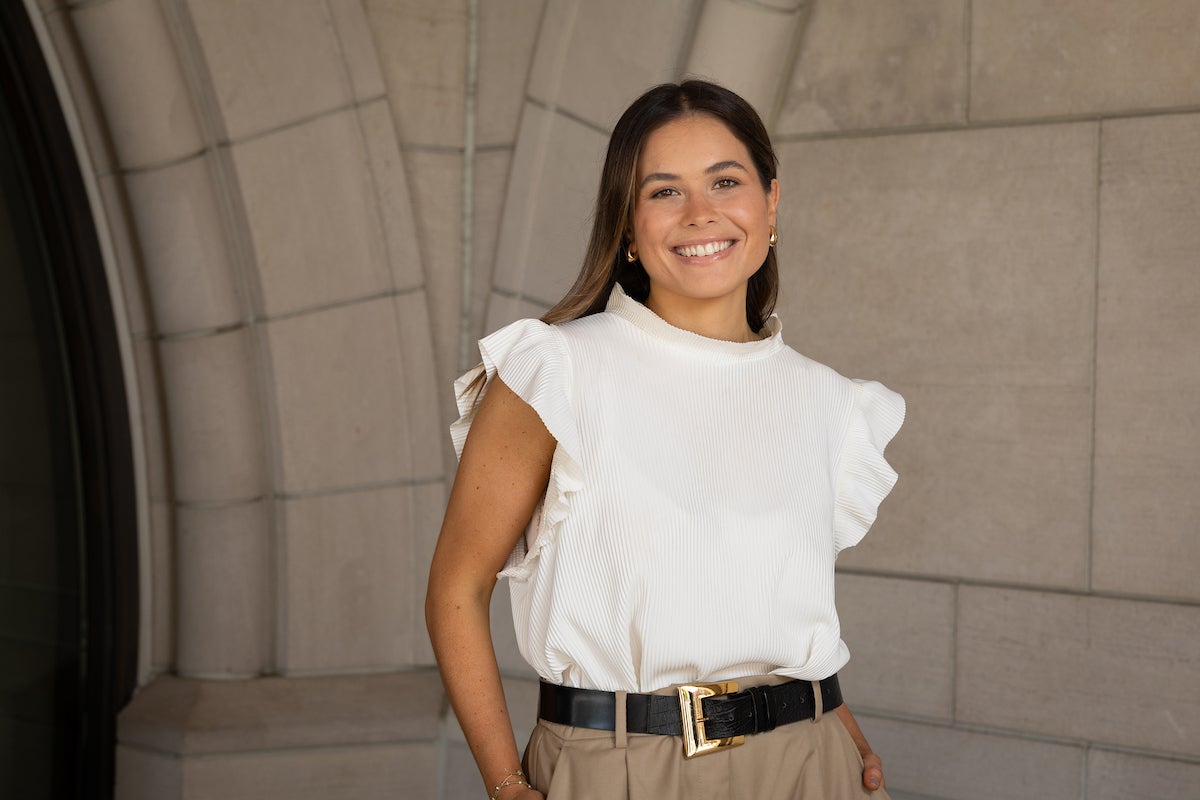
Pìa Ruggieri completed her first law degree at the University of Montevideo in Uruguay, where she became involved in moot court and competed across the world. These experiences allowed her to pursue a career in international arbitration and work in Europe and South America before deciding to pursue an LL.M. to integrate the knowledge she’d acquired in practice. At HLS, she appreciated the flexibility of the curriculum and the opportunity to dedicate herself to the student experience. She took a broad range of courses and served as a comparative law research assistant for Professor Holger Spamann S.J.D. ’09. “HLS expands your network, and it expands your mind. I enjoyed the time outside of class as much as I enjoyed my courses.” After completing her LL.M., Pìa feels relaxed and confident: “I feel like now I have every tool I need to take the path that I want. And if at some point I want to change gears, there’s someone I can call up. If I move to a new country, there’s probably someone there that I know.”
Emilija Valentinaite – Lithuania
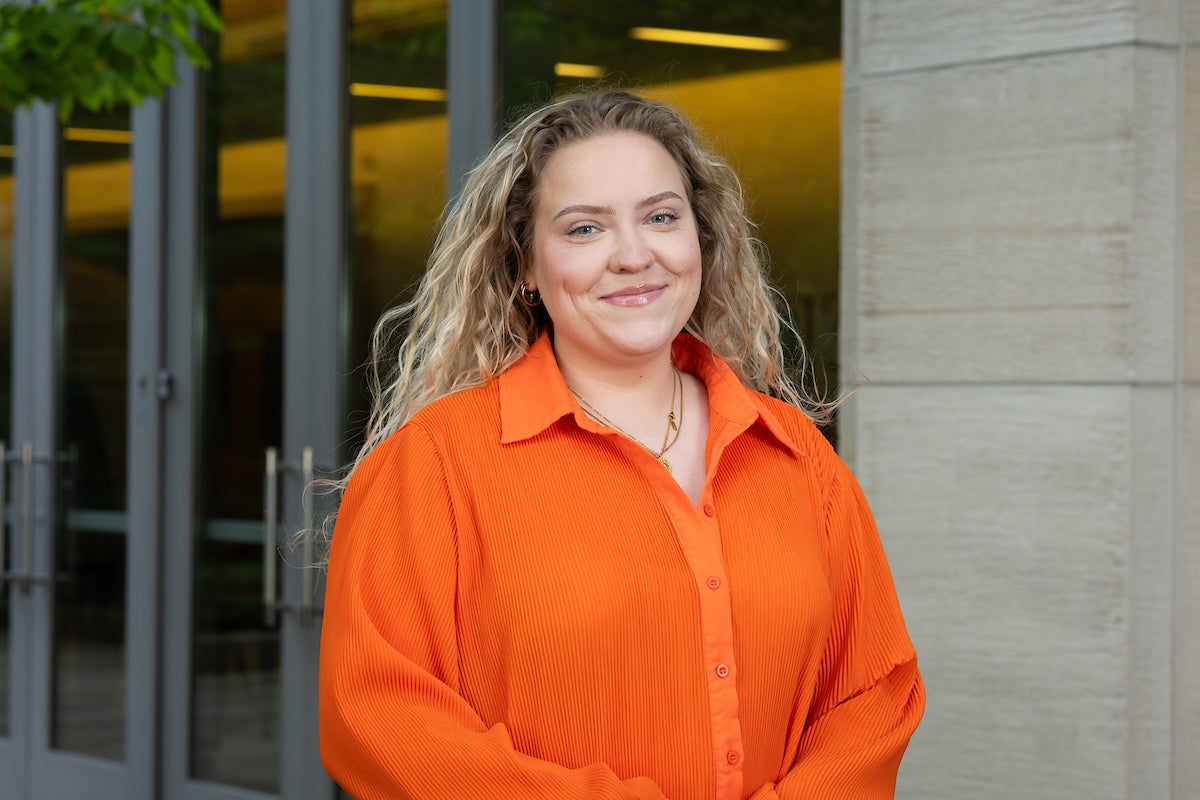
Emilija Valentinaite developed a passion for international law and dispute resolution through NGO and private practice work. At HLS, she aimed to stay curious and explore new areas, joining the Women’s Law Association and Harvard Law Entrepreneurship Project and serving as a Human Rights Journal articles editor and a programming co-director for HLS Advocates for Human Rights. She also worked as a research assistant for Professors Idriss Fofana and Adaner Usmani on projects analyzing connections between anti-slavery and equality laws and exclusion of Asian immigrants in the U.S. as well as global criminal punishment tendencies. After HLS, Emilija plans to return to international litigation practice while engaging in work where she can share what she has gained through her experience at HLS with those lacking the same opportunities. HLS has profoundly impacted her both professionally and personally: “You grow and gain a deeper sense of understanding by consciously choosing to learn from people that surround you. I am grateful that HLS gave me a chance to meet and learn from these thoughtful and inspiring people.”
Making citizens’ lives better
Niki Kerameus LL.M. ’04 draws on her legal training as Greece’s Minister of the Interior
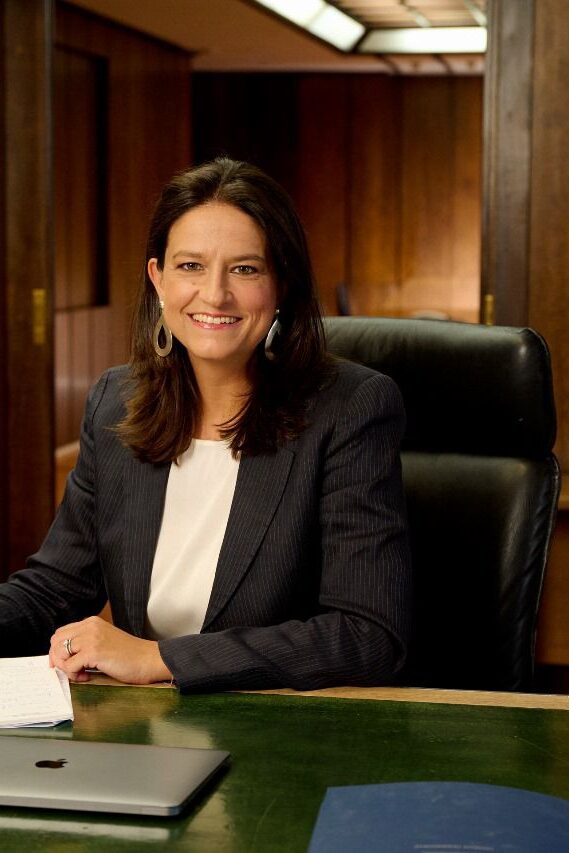
Greece’s Minister of the Interior, Niki Kerameus LL.M. ’04, has found her training as a lawyer to be invaluable in her political career. “When you’re in office, you’re called upon to make a large number of decisions, many of which have a legal dimension. And even though you are advised by legal counsel, having the experience and academic background of a lawyer enables you to navigate complex issues in a way that’s sound and in compliance with existing frameworks.”
Niki did not initially plan to enter politics. She earned undergraduate and master’s degrees in law at the University of Paris II (Panthéon-Assas) and came to the LL.M. program at HLS to enrich her understanding of common law approaches and to take advantage of the international environment. At HLS, she took courses in international arbitration and cross-registered for courses at Harvard Business School. “My studies helped me in so many ways: more rigorous legal reasoning; a different perspective after studying for five years in a civil law system; a valuable interaction with a variety of different fields — the list is long.”
After the LL.M., she practiced as a litigator at Cravath in New York and then with Kerameus & Partners in Athens. When the financial crisis hit Greece, Niki and others saw people in tremendous need and wanted to find a way to help. They realized that there were many companies who wanted to donate goods but didn’t know where to donate them. To address this disconnect, she and four colleagues founded Desmos, an NGO which aims to match surplus to need: “We went to companies or individuals who had goods or services to offer, and at the same time we documented the needs of NGOs or others offering social welfare services,” she explains. “It might be as small scale as a family donating a wheelchair they no longer need. Or a company that produces consumer goods might have a production run with slightly defective packaging that is not suitable for store shelves even though the product itself is perfectly fit for consumption.”
At the time, if a company chose to donate such a product rather than destroy it, the company would be taxed on the donation. Frustrated by this disincentive, Niki raised the issue with then-Prime Minister Antonis Samaras MBA ’76, whom she met at a Harvard Alumni Association event. “A law was indeed subsequently passed that provided an exemption from taxes when donating goods. A few years later, Prime Minister Samaras asked me to be a candidate in the upcoming elections. I was elected to the Hellenic Parliament in 2015.”
In 2019, Greece’s newly elected Prime Minister, Kyriakos Mitsotakis AB ’90 MBA ’95, appointed Niki to serve as Minister of Education and Religious Affairs. In this role, she undertook a large number of reforms, starting with extending mandatory preschool to the age of four, creating a new curriculum for all children aged four to fifteen focusing on soft skills such as critical thinking and empathy, and introducing English as a mandatory foreign language course as of the age of four. The Ministry also upgraded and extended a system of “experimental schools,” entered through a lottery system, where new educational tools and curricular innovations, like teaching robotics to 4-year-olds, could be tested across a diverse range of students and a system of “model schools” for students of an extremely high academic standard, entered through a very challenging exam process. During her tenure, the Ministry established tougher academic standards for entry into universities and a program to encourage academic exchanges and other partnerships, such as dual and double degrees between Greek universities and leading U.S. universities. There was also a renewed focus on vocational training. “Greece has a number of professions that are in tremendous need in society today and that are very well-paid — such as programmers and renewable energy technicians — yet we don’t have enough people in them.”
When Mitsotakis was re-elected Prime Minister in 2023, he asked Niki to move into her current role as Minister of the Interior. In Greece, she explains, the Ministry of the Interior is responsible for the public sector as a whole — from oversight over all civil servants and public bodies to citizenship, elections, and the operations of municipalities and regions. Niki defines the Ministry’s mandate as “How do we make the lives of our citizens better?” Much of the focus, she adds, is on ensuring that the right person is in the right position: “For example, we recently passed legislation that sets much higher standards for the heads of public bodies, including the qualifications needed to apply for these positions and a skills test.”
Another ongoing initiative is the digitalization of public services, a project that Niki described in detail at a recent talk at the law school. “In the past, you had to hire lawyers to go from one ministry to another, just to find out who’s responsible for what,” she explains. “Now, the government has launched Mitos, a one-stop, AI-driven national public service website with easy-to-access, concrete information about more than 3,000 procedures, including renewing a passport, applying for a permit, becoming a teacher, making a correction on a forest map, and anything you can possibly imagine.” This year, for the first time, the digital transformation enabled Greek citizens living abroad to register electronically to vote by mail, without returning to the country.
Niki has found her work in public service to be incredibly rewarding while at the same time very challenging. “Most of the time, you’re confronted with difficulties and complex problems,” she notes, adding that it was extremely useful to have encountered really tough situations in the legal profession in three different countries before entering politics.
In addition to working with other Harvard graduates in the Greek government, she has been involved with the Harvard Alumni Association of Greece (elected as a member of the Board of Directors for several terms) and maintained strong connections with her LL.M. class through WhatsApp: “When I was practicing as a lawyer, I very often came across a need to find lawyers in different countries, and my first point of reference was my LL.M. group. It’s a common point of reference for our entire class – we have kept very close ties.”
“Whatever we wanted to do was possible”
Ghislaine Bouillet Cordonnier LL.M. ’90 and Lor Sok LL.M. ’15 reflect on the transformative nature of the LL.M. program
Ghislaine Bouillet Cordonnier LL.M. ’90
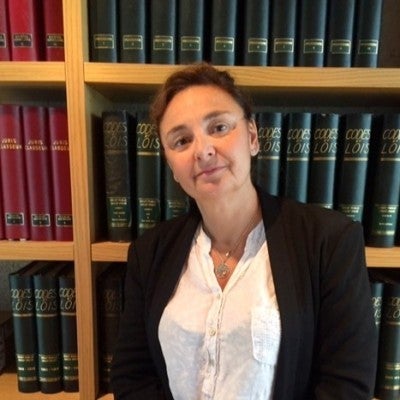
As an LL.M. student, Ghislaine was “very driven towards a career as a corporate finance lawyer,” focusing her coursework on finance, securities regulation and company law. These courses helped her to complete her Ph.D. in corporate finance and venture capital. Looking back, she feels that she should have taken courses to expand her spirit and openness, noting that at an LL.M. ’90 reunion last May in Madrid gathering classmates from 23 countries, several of them were still talking about the “Thinking about Thinking” class they took with Professor Roberto Mangabeira Unger LL.M. ’70 S.J.D. ’76. That said, Ghislaine greatly enjoyed the Negotiation Workshop course with Professor Roger Fisher LL.B. ’48, which included an intensive week-long collaboration between HLS and Harvard Kennedy School in which more than 100 participants, representing their home countries, read, analyzed, voted on, and defended their positions on the environmental questions that would be discussed at the 1992 Rio Earth Summit.
“Of course, the LL.M. presented an incredible opportunity to learn both from great professors and from our classmates and opened doors to an unparalleled international network,” Ghislaine observes. “But we took away much more than that: we also became more daring. The people around us showed us that whatever we wanted to do was possible. That was a great lesson in life. It gave us tremendous energy to think outside the box and to never take ‘no’ as an answer.”
After graduation, Ghislaine passed the New York Bar and forged broader connections among alumni, practicing in Washington, D.C. Working closely with a classmate, Christian Buehling-Uhle LL.M. ’90, and with support from lawyers in her professional network (including former U.S. Secretary of Transportation William T. Coleman, Jr. JD ’46, and Ibrahim Shihata S.J.D. ’64 and Herbert Morais LL.M. ’67 S.J.D. ’72 of the World Bank), she co-founded the International Section of the Harvard Law School Association, which was launched in 1991.
“I really wanted to travel around the world, in part because of my involvement with the International Section,” she recalls. Over the next 30 years, Ghislaine passed the Paris Bar and worked with a law firm in France, the World Bank in Africa, UNESCO in Cambodia, an electronic/nuclear company and INSEAD in Singapore, and ultimately as senior vice president and general counsel – Asia Pacific with Solvay, a Belgian multinational specialty chemical company, in China. Along the way, she and her husband adopted four children. “The children were complaining, because I was traveling all the time. And my oldest, Lucille, who was 10 at the time, said “Mommy, you are here with your environmental talk at home, but you work with a heavy industry company.’ So I followed her advice!”
Ghislaine launched her first CSR project at Solvay, training its employees to work with children and teach them about environmental issues. “We were getting some worldwide attention and creating momentum because of the launch of the initiative during World Expo 2010 in Shanghai under the auspices of the President of France himself,” she recalls. After that, she decided to devote herself to similar endeavors full time. In 2014, Ghislaine and her family returned to France where she founded the Albatross Foundation, a non-profit focused on education of youth on sustainable development. Among its various projects, the foundation trains trainers on the environment, produces children’s books, teaches children about sustainable agriculture in its Eco-labelled garden, and has developed Saphir, a free mobile app (in collaboration with CNRS/National Research Centre of France and the King Beaudoin Foundation). It has engaged with more than 15,000 young people in France, China, and Brazil. Notably, many of Ghislaine’s LL.M. classmates have contributed to the foundation’s work, for example by supporting the multilingual translations, helping with the Saphir app and serving on the board and in advisory capacities.
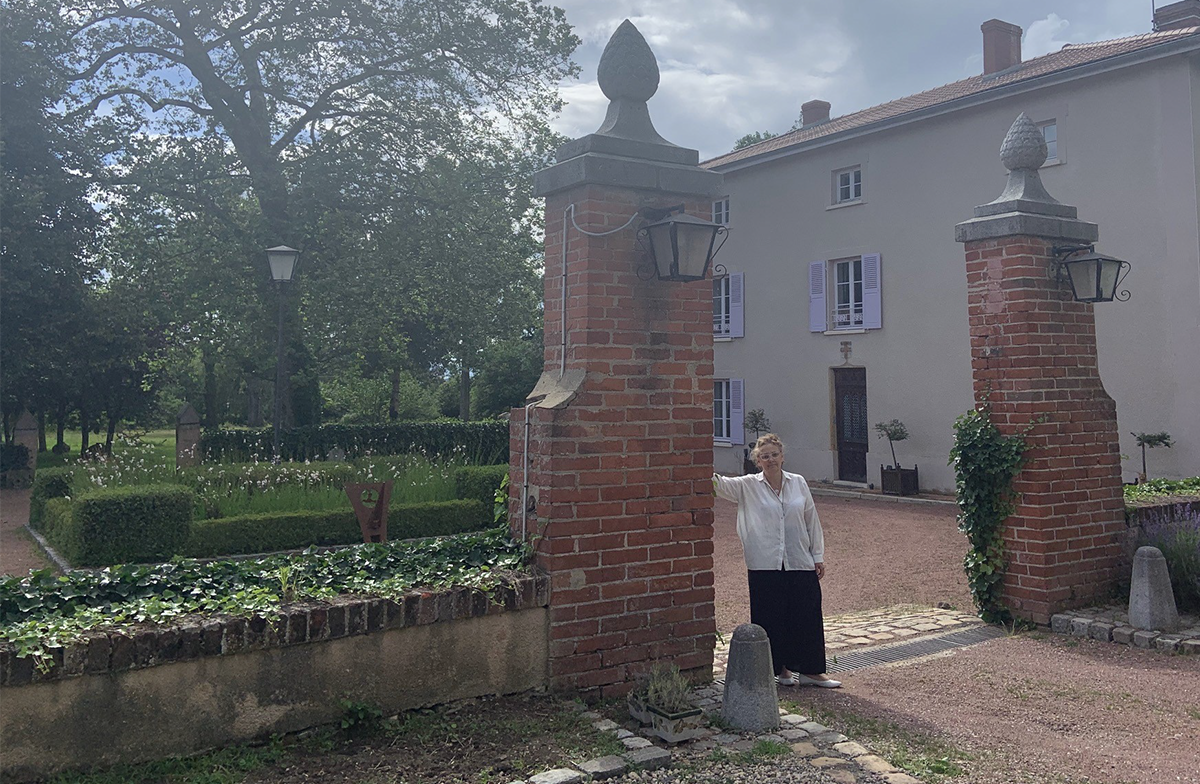
Ghislaine has set up other enterprises, including Albatrosslegal.org, a probono legal platform that won the Pro Bono Trophy of the Paris Bar. She also founded Create2donate.org, a philanthropic e-commerce platform. Artists that have supported this work include the famous Paris jeweler Philippe Tournaire, who created an “Albacoin” pendant.
A once-vacant 17th-century chateau in the Loire Valley now serves as the family’s home, the Albatross Foundation’s headquarters, an Airbnb providing financial support for the foundation, and an educational garden where children come for programs on sustainable agriculture. Ghislaine’s work with the foundation reflects just how transformative the LL.M. is: “After all,” Ghislaine laughs, “it made me daring enough to quit my job as a senior VP, with expat amenities, to open a non-profit and of course with my husband adopt four fabulous children.”
Lor Sok LL.M. ’15
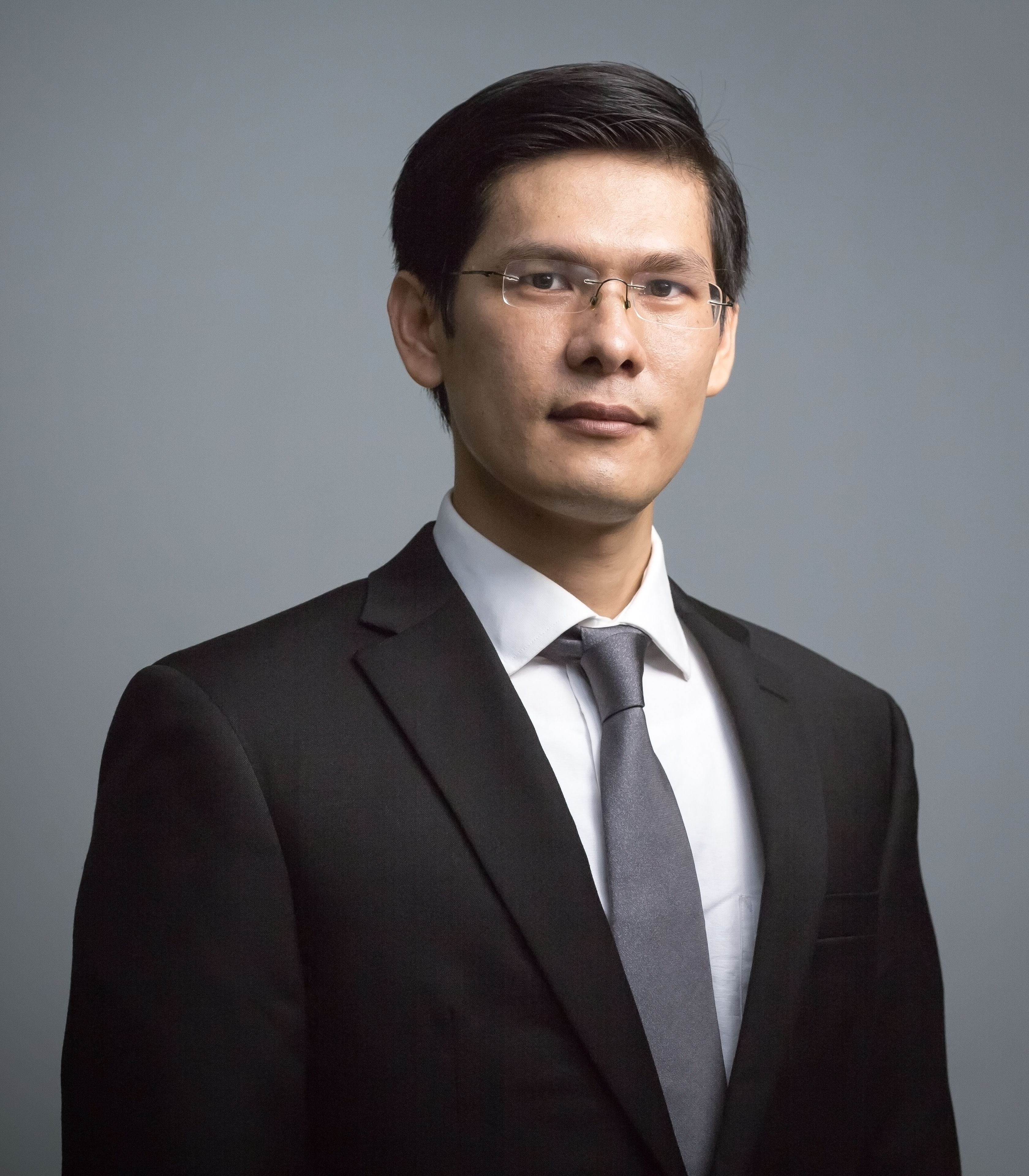
As noted in a 2015 interview with Harvard Law Today, Lor Sok saw a career in law as a way “to make changes in society, especially in a low-income country that [had] recently emerged from a long period of conflict.” Before coming to HLS, he had served for more than a decade as chief legal officer, then executive director, of the Foundation of Cambodia’s independent, quasi-judicial Arbitration Council, which was established in 2003 to facilitate resolution of collective labor disputes. “There was a demand for improvement in the quality of public services, and in the neutrality, predictability and transparency of dispute resolution services; as in any developing country, this is a persistent challenge that needs ongoing efforts.”
Inspired to attend Harvard by fellow Cambodians who had studied at HKS, Lor credits his LL.M. studies with steering him in the direction in which he could make the most impact. He found the values and principles inherent in the U.S. Constitution, including the balance of powers, particularly enlightening and enjoyed courses on the history of U.S. tax policy and on problem-solving approaches in different countries. Studying law and economics also had a profound impact. “It has shaped the way that I view situations, and how public problems should be solved — using law as a tool but bearing in mind the surrounding context, the circumstances of a country.”
What Lor found most transformative about the LL.M. program was the way in which it broadened his horizons. “More than just the substance of the law, we were immersed in its guiding principles. It offered a very rich framework to look at issues, from multidisciplinary perspectives,” he says. “This is something that I have carried with me in looking at the situation in Cambodia, and in how I practice law and run my law firm.”
A year after earning his LL.M., Lor co-founded Sok Xing & Hwang, a law practice — unique in Cambodia — that combines an emphasis on private sector transactions with a focus on public policy. Today, the firm has 18 lawyers and a network of partnering offices in Myanmar and Vietnam. “We were interested in the creation of opportunities that have an effect on the rest of the economy, through our modest participation in providing legal services,” he explains. The firm primarily works with businesses and non-profits on private transactions, including mergers and acquisitions and legal compliance. According to Lor, legal compliance is increasingly important for Cambodia, due to stronger regulation by the country’s trade partners and the growing emphasis on human rights and labor rights across the supply chain. The firm also maintains a public policy and development impact practice focusing on labor market governance and policy. “Cambodia wants to accelerate the transformation from an informal economy to a formal economy, and things like labor market and tax policy come into play. We provide consulting advice to the government, international organizations and development agencies, and other clients.”
For the past several years, Lor has also been a vice president of the Cambodian Federation of Employers and Business Associations, the peak employer organization in Cambodia, and a member of Cambodia’s Committee on Law, Tax and Governance, a government initiative that brings together private sector businesspeople and their government counterparts. “We share advice and views on what the challenges are, and what should be changed,, to remove barriers to a favorable climate for investment and doing business,” he explains.
Over the last decade, he says, a lot has changed. Cambodia has many new laws and has become more dynamic in the way it introduces laws to address public issues. Though fundamental laws like the civil and criminal codes have remained the same, some other laws, such as investment laws, have evolved constantly and quickly. While the new laws have increased regulations, Lor believes they have created more opportunity for good economic actors in Cambodia.
Lor sees his firm as having a part to play in facilitating strategic investments from foreign countries to support manufacturing and other businesses. Cambodia’s economy is labor-intensive, with traditional sectors like apparel, footwear, and agricultural products, and the country wants to transition to a more-skills-based and knowledge-based economy, developing industries like electronics and automobile assembly. “Cambodia is always in need of capital,” he notes. “It is really important to create opportunities, especially for young people. If the environment for jobs and the transfer of skills is created, it will have ripple effects on overall conditions in the country, and the overall well-being of the people.”
A kind word and a soft landing
Peter O’Meara of the Harvard International Office supports international students and scholars at HLS
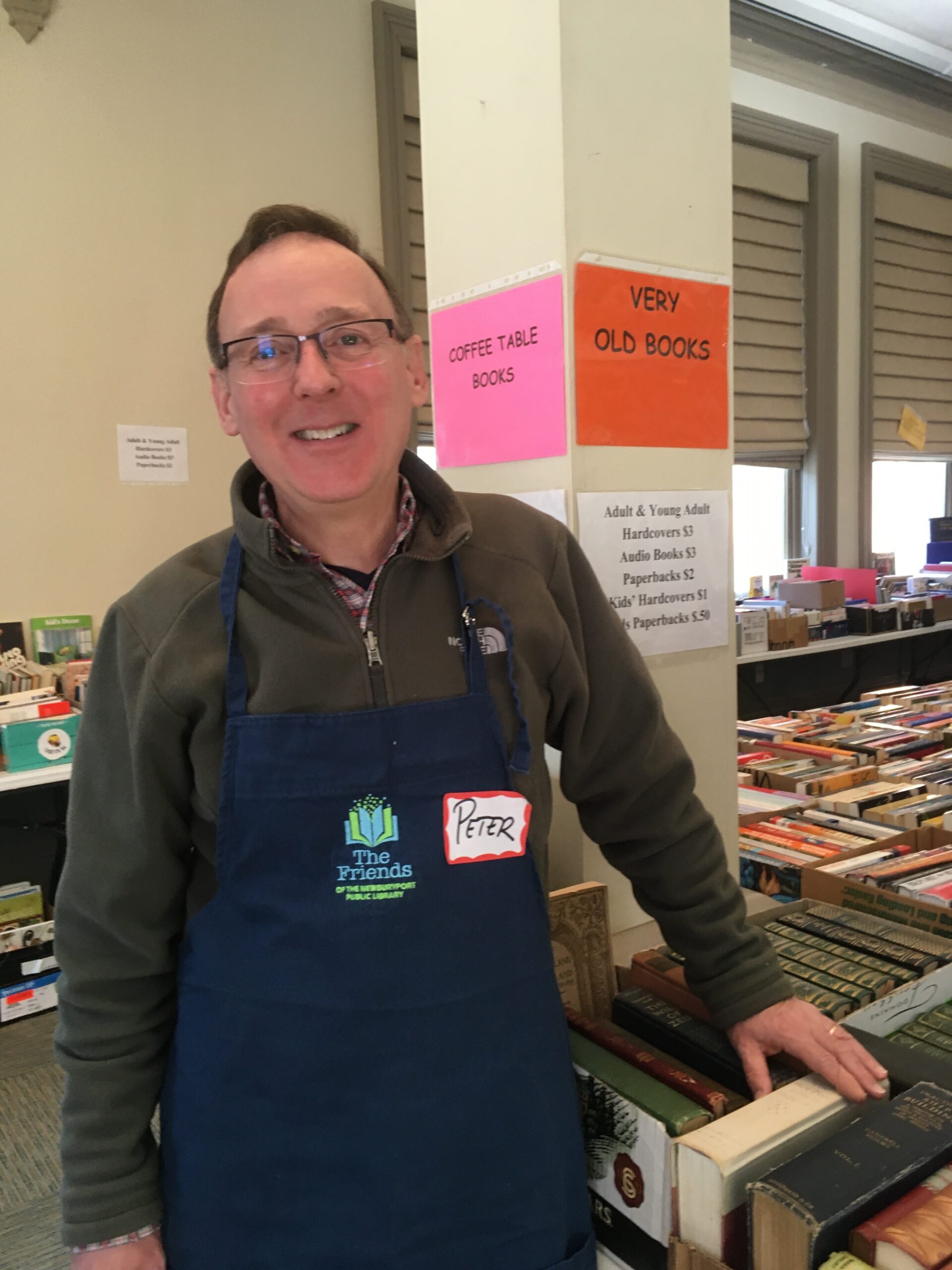
In August, when the law school’s new cohort of international LL.M. students arrives for Orientation, Peter O’Meara, the Harvard International Office (HIO) international student and scholar advisor for HLS, is often one of the first people the students meet. As a technical matter, he’s there to do a final check on each student’s visa status and activate their federal immigration record. But he also finds it an opportunity to offer a kind word and a reassuring smile. “People who come to Harvard are brilliant and intrepid, but it can be disconcerting to come to this new environment. We’re all part of a welcoming committee that helps them land safely.”
Peter’s work with international students and scholars is fundamental to his identity. “I’ve always toggled between cultures and languages, something I very much enjoy,” he remarks. His father is New York Irish and his mother is Penobscot, from Maine; he is an enrolled member of a federally-recognized Indian tribe. Educationally and professionally, almost everything Peter has done has had an international component. In high school, he traveled to Peru as an American Field Service exchange student, where he first met his wife, Rosario, though they married years later. He then studied international relations at the University of Maine, and earned a master’s degree in history at the University of Chicago. As an undergraduate, Peter undertook an internship at the U.S. Department of State, returning the following year as an acting desk officer in the Office of Caribbean Affairs.
Peter first came to Harvard in 1991, working with Latin American Scholarship Programs for American Universities (LASPAU), a non-profit organization founded by the university to support higher education opportunities for students from Latin America and the Caribbean. He was assigned to a project funded by the Venezuelan government to recruit and place students in Canadian universities. After several years with LASPAU, Peter taught Spanish in a public high school, and then worked as an international student and scholar advisor at Boston University before returning to Harvard in 2011. HLS was part of his initial caseload, and has been ever since.
On any given day, Peter may be advising an LL.M. student, an S.J.D. candidate, or a visiting scholar from a foreign university. In the 2023-2024 academic year, Harvard Law School hosted 477 international students and scholars from 70 countries. (A scholar, he explains, is anyone who is not enrolled at Harvard as a student, from an intern to a tenured professor.) “I feel like I hit the jackpot,” he says. “It’s been very interesting to gain an understanding of how the law school works. I’ve been able to serve as an advocate for international students, and there’s an amazing breadth of research that occurs at HLS.”
Peter’s work with each year’s LL.M. class goes far beyond checking them in. It begins soon after they are admitted, when he receives their visa-related paperwork. He looks at each student’s country or countries of citizenship, and their current immigration status, if any, taking their specific circumstances, plans, and hopes into account. Most cases are straightforward, but some students’ circumstances won’t necessarily let them meet their goals. “In that case, I may have to call them and tell them we need to come up with a different plan,” he notes. “But I enjoy this kind of work. It involves learning a body of knowledge that is often not black and white and conveying it others, and also a lot of problem-solving.”

By the time a student comes up to the HIO table at Orientation, much of the hard work is done, and the fun can start. “I delight in the students — I really enjoy meeting them, and especially like their questions,” Peter notes. “The students get so creative; sometimes they even come up with new approaches that enable them to take advantage of unique opportunities while maintaining their visa status. On the other hand, there is always a danger that a novel solution could have very serious negative immigration consequences, so they need to check with me first — I am happy to brainstorm with them!”
The students also delight in Peter. Despite its highly technical subject matter, his visa information session is invariably a highlight of Orientation, rated by LL.M. students almost as highly as their reception with the Dean. Throughout the year, Peter makes a point of coming to signature events, including the International Party and Commencement reception. And in addition to helping students with emergencies and life developments, he provides advice about their opportunities for optional practical training or academic training after the program.
“At every step of the way, there’s such an intense, individualized effort involved in bringing an international student to HLS and helping them get the most out of their time here,” he notes. “It is a privilege and a joy to be a part of the process!”
Commencement
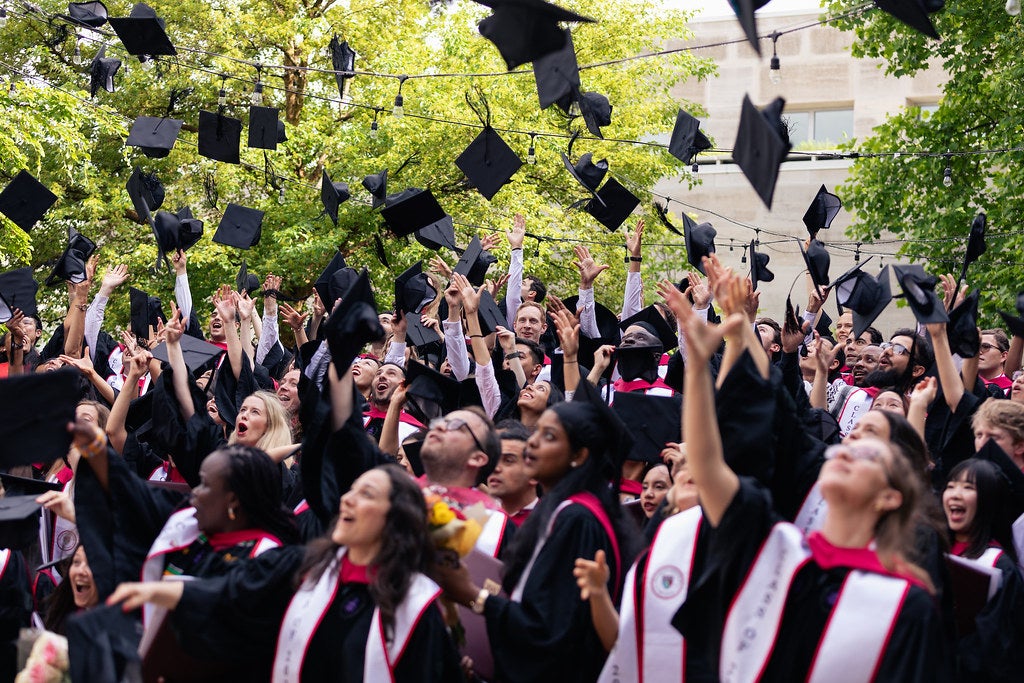
This May, we graduated our 100th LL.M. class and celebrated eleven S.J.D. candidates who completed the program in 2023-2024. Interim Dean John C.P. Goldberg highlighted the S.J.D. graduates’ cutting-edge dissertations and academic career plans and remarked on the tremendous growth of the LL.M. program from its inaugural class of four students in 1924. Speaking to this year’s LL.M. cohort, he noted “You 180 have been fabulous. You have produced scholarship on topics ranging from investment arbitration and artificial intelligence to human rights and the comparative law of free speech. You’ve also led student organizations, put together topical conferences, participated in pro bono trips, performed in the parody, and shared your cultures with each other and the rest of the HLS community.“